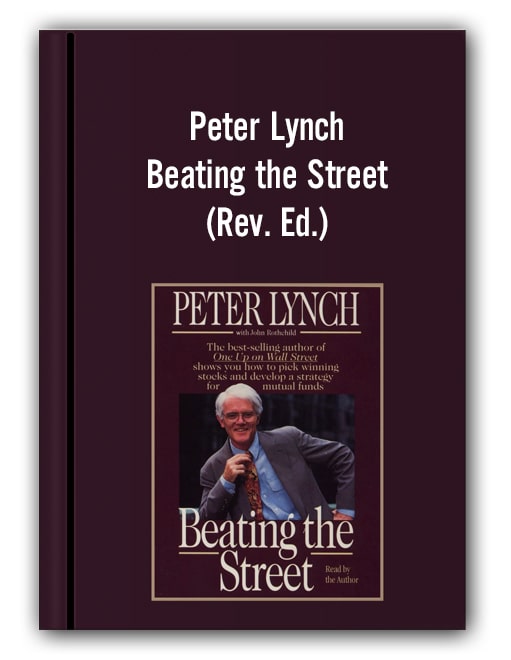Author: Peter Lynch
- Trading books are a form of accounting ledger that contains records of all tradeable financial assets of a bank.
- Trading books are subject to gains and losses that affect the financial institution directly.
- Losses in a bank’s trading book can have a cascading effect on the global economy, such as those that occurred during the 2008 financial crisis.
Beating the Street (Rev. Ed.)
Sale Page : amazon.com
This product is available
The only clunker in the model portfolio is IBM, which I don’t have to tell you has been the favorite of professional adult money managers for 20 years (yours truly included — grown-ups keep buying it and keep wishing they hadn’t). The reason for this destructive obsession is not hard to find: IBM is an approved stock that everybody knows about and a fund manager can’t get into trouble for losing money on it. The St. Agnes kids can be forgiven this one foolish attempt to imitate their elders on Wall Street.
Let me anticipate some of the criticisms of the St. Agnes results that are sure to come from the professional ranks. (1) “This isn’t real money.” True, but so what? Anyway, the pros ought to be relieved that St. Agnes isn’t working with real money — otherwise, based on St. Agnes’s performance, billions of dollars might be pulled from the regular mutual funds and turned over to the kids. (2) “Anybody could have picked those stocks.” If so, why didn’t anybody? (3) “The kids got lucky with a bunch of their favorite picks.” Perhaps, but some of the smaller portfolios chosen by the four-person teams in Ms. Morrissey’s class did as well as or better than the model portfolio selected by the class at large. The winning foursome in 1990 (Andrew Castiglioni, Greg Bialach, Paul Knisell, and Matt Keating) picked the following stocks for the reasons noted:
100 shares of Disney (“Every kid can explain this one.”)
100 shares of Kellogg (“They liked the product.”)
300 shares of Topps (“Who doesn’t trade baseball cards?”)
200 shares of McDonald’s (“People have to eat.”)
100 shares of Wal-Mart (“A remarkable growth spurt.”)
100 shares of Savannah Foods (“They got it from Investor’s
Daily.”)
5,000 shares of Jiffy Lube (“cheap at the time.”)
600 shares of Hasbro (“it’s a toy company, isn’t it?”)
1,000 shares of Tyco Toys (ditto.)
100 shares of Ibm (“premature adulthood.”)
600 shares of National Pizza (“nobody can turn down a pizza.”)
1,000 shares of Bank of New England (“how low could it go?”)
Get: Peter Lynch – Beating the Street (Rev. Ed.)
Be the first to review “Peter Lynch – Beating the Street (Rev. Ed.)” Cancel reply
You must be logged in to post a review.
Related products
Free Download
Free Download
Free Download
Free Download
Free Download









Reviews
There are no reviews yet.